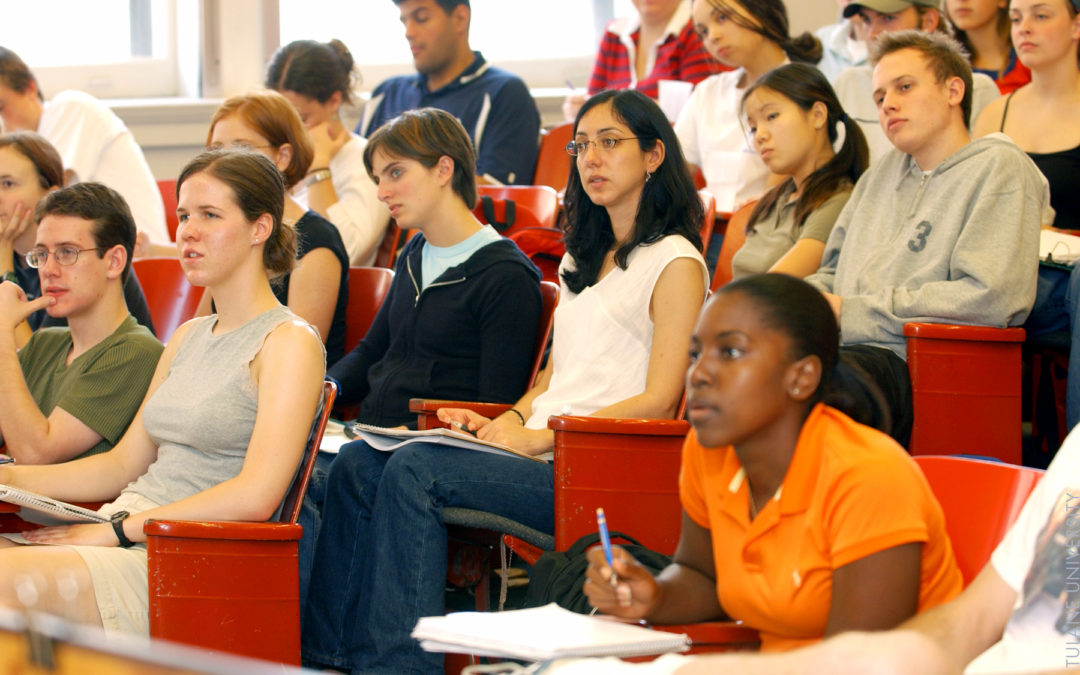A global network of economics students is calling on their universities to teach them the truth about banks. Brought together by the international Rethinking Economics network, the “Rethinking the Role of Banks in Economics Education” campaign has spread to 27 universities across 11 countries, supported by 57 economists and organisations who signed an open letter.
The letter states that around the world, universities teach outdated banking theories “without balance or regard for existing evidence on the financial sector.” It continues, “Today’s economics students will become the policy-makers, economic influencers, politicians, financiers and business leaders of the future. To create stable and productive economies globally, they must have a real-world understanding of banks and money creation.”
The campaign started at Maastricht University in October, has since been taken up by students from the UK, Nigeria, Canada, and across Europe. The open letter’s signatories include economists Kate Raworth (author, Doughnut Economics), Steve Keen (author, Can We Avoid Another Financial Crisis?) and organisations such as Positive Money and Finance Watch.
As for us at Positive Money Europe, we were also delighted to sign this letter. As one of the few nonprofit organisations doing advocacy on banking and monetary issues in Brussels institutions, we are well placed to say that better education on those issues would likely lead to better policymaking inside EU institutions.
Banks are not intermediaries
Most economics departments around the world teach the outdated theory (from the ‘60s!) that banks channel pre-existing money from lenders to borrowers, acting solely as an intermediary. As research from the Bank of England, Bundesbank and Positive Money UK have shown, banks are not intermediaries. Instead, the open letter explains that “Commercial banks create the vast majority of money in circulation” and “‘invent’ the money by crediting the borrower’s account.”
Not only does this reality contradict the taught theories in most textbooks, but it also has “enormous” real-world implications on the understanding of the economic and financial crisis. In fact, as a matter of fact, one of the causes of the 2008 Financial Crash was a failure to understand how banks (create and destroy), leading to a distorted analysis of the economic scenario. The open letter explains that
“commercial banks also determine where the money is directed in the economy. Around 80% of new money created in countries like the US and UK currently goes towards existing property and financial markets, rather than the ‘real’ or productive economy, leading to the soaring house and land prices, and housing crises. In the Global South, 33 major global banks poured $1.9 trillion into fossil fuels since the 2015 Paris Climate Agreement, directly influencing the trajectory of economies that will be hit first and hardest by climate change.”
Maurice Höfgen, author of the initial letter affirmed:
“Living in a highly financialised economy with complex challenges ahead of us, economics graduates need to be equipped with a proper understanding of our monetary system. As our current curricula fail to do so, we students demand a change. Under the head of Rethinking Economics, critical-thinking and curious students from all over the world have joined this effort. I have genuine hope that this campaign can change our discipline for the better.”
Powerful positions in Central Banks and other financial institutions are largely held by Economics graduates. The quality of their teaching is instrumental and must not be based on outdated textbooks and theories. Instead, the material used in classes should reflect the reality of the banking as it is, shedding a light on the huge consequences of the current banking system and its faults on our lives.
Read the open letter here.


That’s great news, that students are demanding to be taught how the banking and money system – and the money-using economy – actually work. I just hope we don’t have to wait a generation or two until these students become the policymakers and make reforms based on their knowledge of monetary realities; unlike present authorities who make policies based on their belief in false economic theories.
I’m not sure they are ‘today’s economics students will become the policy-makers, economic influencers, politicians, financiers and business leaders of the future’.
They and we all have been kept in the dark for a reason and
it’s far more sinister than people can imagine.
But I do hope something changes and this going public.
Yes, quite sinister to have the money system we have driving the world, the only living planet we know if, into mass extinction. Sinister indeed as they do all kinds of dirty tricks to keep truth boxed up even murdering or imprisoning truth-tellers in order to maintain the system. So it is systematically concentrating wealth and power into the hands of the worst possible people in the world, those with the power to make the world a good place who instead are making it into a war-torn hulk, a burned out cinder. Will the world wake up to the injustices of our money system? I hope so soon. Glad we see that it is not a technical problem, it is a political problem requiring an extraordinary human collaboration to change. We must not be distracted by false theories or microeconomic solutions posing as macroeconomic solutions.
I support Positive Money views, but it was my understanding that private banks create money and loan savings. The complaint I thought was that they do more than be a ‘savings and loans’ operation, that they ‘also’ create money. What does happen to savers deposits? What happens to the term deposits we make?